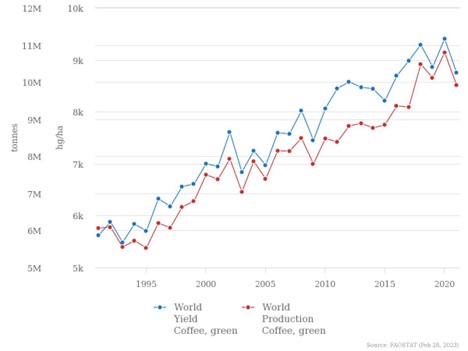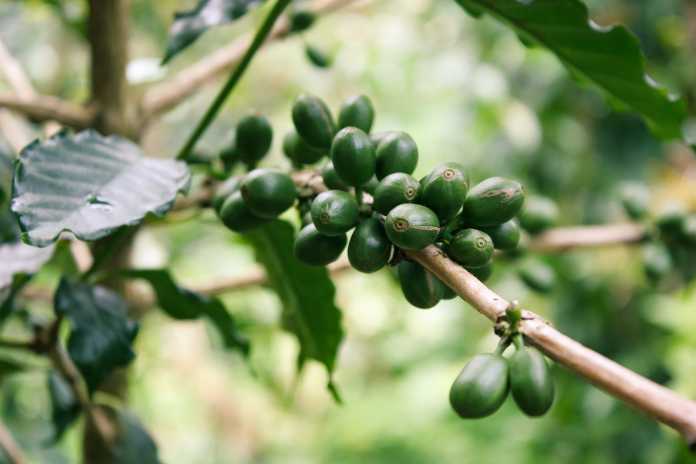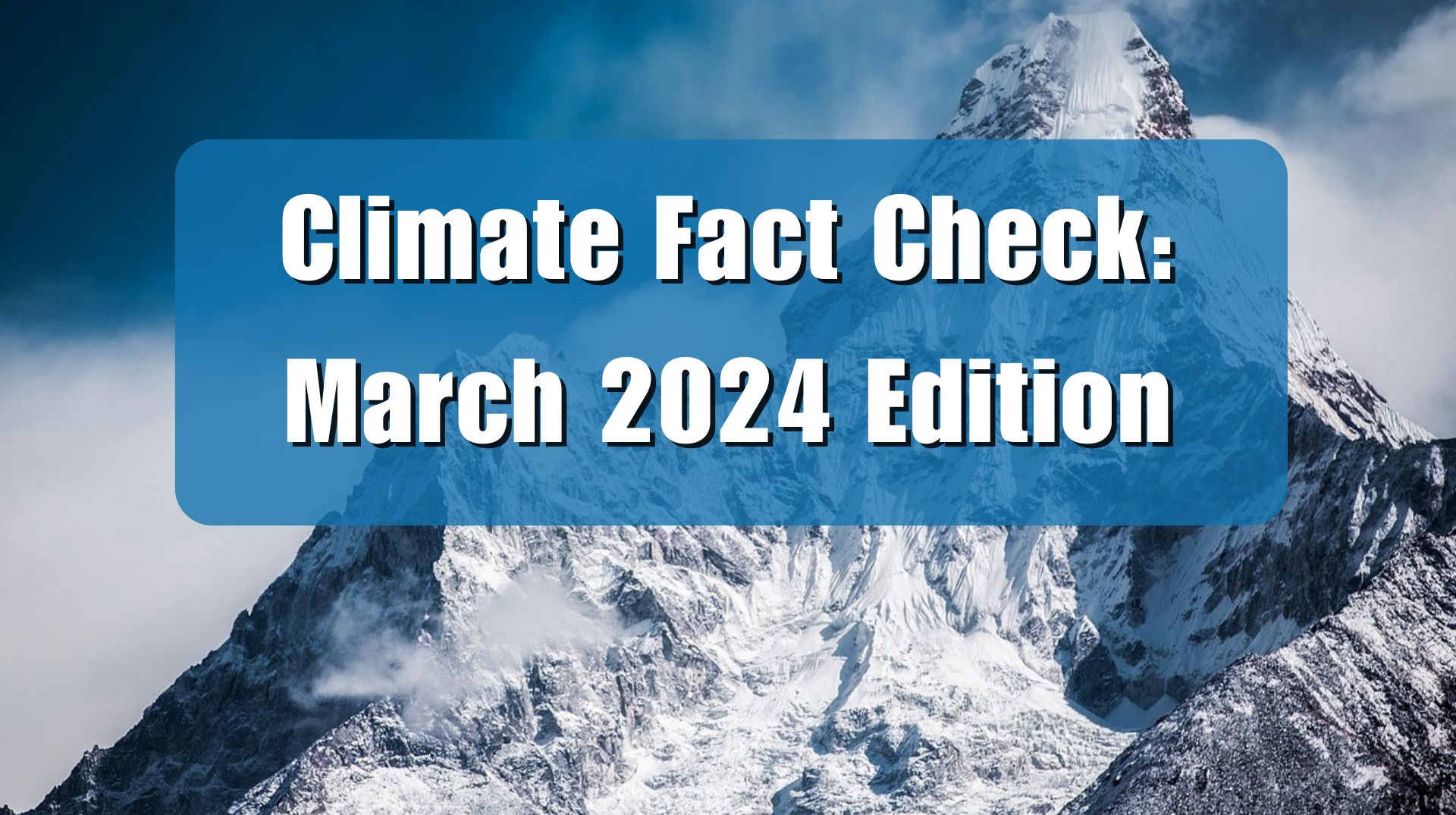In the article, “Coffee Farming Yields Down By 50% Due to Rising Temperatures,” author Rich Co can’t get his facts or timeline straight, writing “[a]ccording to experts, rising temperatures are causing a 50% decrease in coffee farming yields.”
Nowhere in the entire story does Co cite or quote a single expert who says climate change has caused a 50 percent decrease in either coffee production or yields. Indeed, since data from the U.N. Food and Agriculture Organizations (FAO) shows a substantial increase in coffee yields and production during the recent period of climate change, it would be surprising if he could find an “expert” who would make such a claim. The FAO’s data shows that between 1991 and 2021:
- World coffee production increased by nearly 64 percent, setting new records for production 13 times during that time period, with the most recent record being set in 2020.
- World coffee yields display a similar trajectory, having grown by more than 55 percent, setting new records 13 times, once again most recently in 2020. (See the figure, below)

Data prove coffee production has not decreased by 50 percent, or even at all, contrary to Co’s claim. Perhaps what he meant to say is that one set of supposed experts, the increasingly climate obsessed Inter-American Development Bank, claimed: “[b]y 2050, the area suitable for growing coffee will have decreased by up to 50%.”
The projection of a 50 percent decline is based on computer model simulations of future climate trends. Yet, as noted repeatedly at Climate Realism, here, here, and here, for example, climate models are seriously flawed. The basic projection they make is the global average temperature in response to additional carbon dioxide concentrations, and after more than thirty years and 6 generations of models, the model projections still run too hot.
Modelers then pile their disparate assumptions about how various features of the earth will respond to the flawed temperature projections and assumed CO2 concentrations, referred to as “feedback mechanisms” or “feedback loops,” to produce simulations of what the world will look like 20, 30, 50, and 100 years from now. Model simulations are tested for accuracy against simulations from other models, rather than available data, in the Coupled Model Intercomparison Project.
Beginning with bad data, adding untested (in some cases refuted) assumptions about interactions, and testing the output against other models which also use bad data and faulty assumptions is no way to produce trustworthy projections about future climate conditions. It amounts to 30 years of Garbage-In-Garbage-Out or GIGO.
Not only are the Inter-American Development Bank’s claims based on weak computer models, they are refuted by what botany, agronomy, and horticulture tell us about the relationship between carbon dioxide levels and net-plant primary productivity.
Agronomy and Botany explain why crop production and yields have increased amidst global warming, and the same sciences explain why the world should likely expect crop production gains to continue. What’s true for plants in general is equally true for coffee. Modest warming has brought slightly higher rainfall totals, and a modestly longer growing season with fewer crop-killing late-season frosts. In addition, crops are benefitting from higher carbon dioxide levels in the atmosphere, which any greenhouse operator will tell you is plant fertilizer, contributing to plants growing larger, faster, and using water more efficiently.
Real world data should have informed the claims Co and Nature World News made about links between global warming and current and projected coffee yields, instead of assertions by a few so-called experts at a development bank. Facts refute any claim that climate change is resulting in reduced coffee production or declining yields. Some basic fact checking and copy editing could have resulted in a story that told the good news about coffee production amid modest warming. Nature World News’ readers might have enjoyed that bit of good news as they sipped their first cup of morning joe.
















